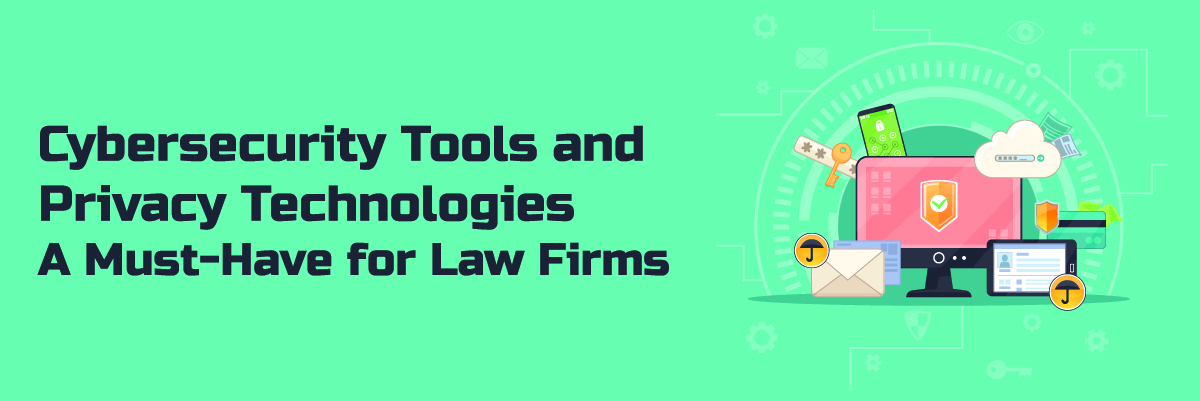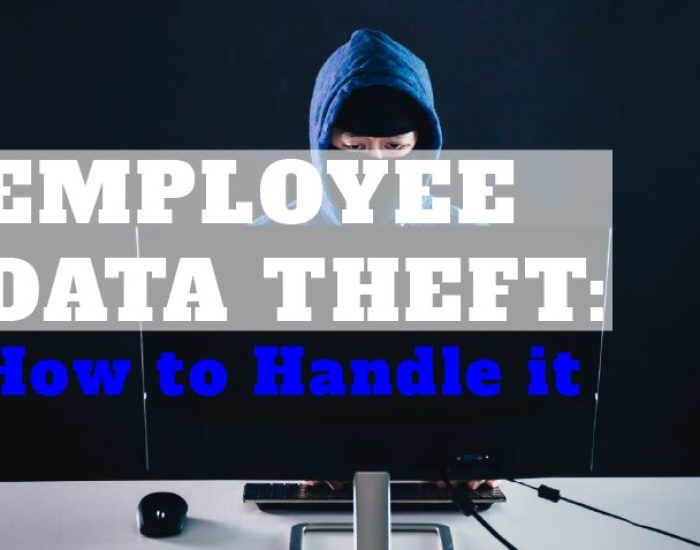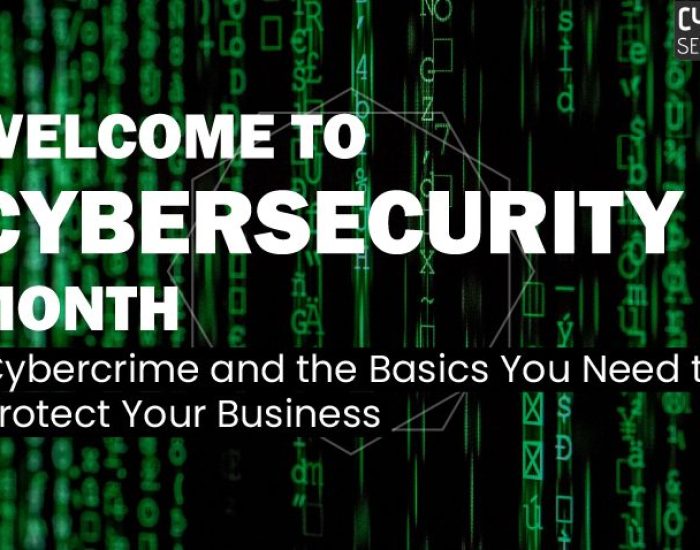Cybersecurity Tools and Privacy Technologies: A Must-Have for Law Firms
As law firms handle sensitive and confidential information, they are a prime target for cyber-attacks. With the increasing number of cyber threats and data breaches, law firms must have strong cybersecurity and privacy technologies to protect themselves and their clients.
Following are some of the must-have cybersecurity and privacy technologies you should consider implementing to help safeguard your sensitive data and maintain the trust of your clients.
Cybersecurity Tools for Law Firms
We recommend implementing several cybersecurity tools to protect your data and systems from cyber threats. Here are three essential tools:
- Antivirus Software: Antivirus software protects against malware and viruses. It scans files and programs for potential threats and prevents them from infecting the system. Antivirus software should be regularly updated to stay up-to-date with the latest threats. Some popular antivirus software options for law firms include McAfee, Norton, and Bitdefender.
- Firewall: A firewall is a network security system that monitors and controls incoming and outgoing traffic based on predetermined security rules. It is a barrier between a trusted internal network and an untrusted external network like the Internet. A firewall can block unauthorized access and prevent malicious traffic from entering the network. Some popular firewall software options for law firms include Sophos, SonicWall, and Fortinet.
- Intrusion Detection and Prevention Systems (IDPS): An IDPS is a security tool that monitors network traffic for signs of an attack and takes action to prevent it. It can detect and block malicious traffic, alert administrators to potential security breaches, and avoid network damage. Some popular IDPS software options for law firms include Snort, Suricata, and IBM Security QRadar.
It’s important to understand that these tools are just part of an overall comprehensive cybersecurity strategy.
Privacy Technologies for Law Firms
In addition to cybersecurity tools, consider implementing privacy technologies to not only protect sensitive data but to ensure compliance with privacy laws. Here are three essential privacy technologies ones we recommend for law firms:
- Virtual Private Network (VPN): A secure network connection allows remote users to access a private network securely. A VPN can encrypt data and prevent unauthorized access to sensitive information transmitted over the web. It’s a must-have for law firms with remote workers or clients needing access to confidential data. Some popular VPN software options for law firms include ExpressVPN, NordVPN, and Cisco AnyConnect.
- Encryption Software: Encryption software uses algorithms to convert sensitive data into code that can only be deciphered with a key or password. This ensures that even if data is intercepted, it remains unreadable and secure. Encryption is essential for sensitive data, such as client information or intellectual property. Some popular encryption software options for law firms include VeraCrypt, AxCrypt, and Microsoft BitLocker.
- Data Loss Prevention (DLP): DLP tools protect sensitive data from unauthorized access, transmission, or use. These tools can detect and prevent data breaches by monitoring data and alerting administrators to potential threats. DLP tools can also prevent accidental data loss by restricting access to sensitive data or blocking the transmission of sensitive data outside the network. Some popular DLP software options for law firms include Symantec Data Loss Prevention, McAfee Total Protection for DLP, and Digital Guardian.
These technologies help firms comply with privacy laws such as the GDPR and CCPA. However, like with cybersecurity tools, these technologies must be implemented as part of a comprehensive privacy strategy to really be effective.
with privacy laws such as the GDPR and CCPA. However, like with cybersecurity tools, these technologies must be implemented as part of a comprehensive privacy strategy to really be effective.
Best Practices for Implementing Cybersecurity and Privacy Technologies
Here are some best practices for law firms to follow when implementing cybersecurity and privacy technologies:
- Conduct a risk assessment: Before implementing any cybersecurity or privacy technology, law firms should conduct a risk assessment to identify potential threats and vulnerabilities. This will help them understand their risks and develop a mitigation strategy.
- Develop a comprehensive cybersecurity and privacy policy: Law firms should develop a comprehensive policy outlining their approach to cybersecurity and privacy, including using tools and technologies. This policy should be regularly reviewed and updated as needed.
- Train employees: Employees are often the weakest link in any cybersecurity or privacy strategy. Law firms should train their employees on best practices for cybersecurity and privacy, including how to use the tools and technologies implemented by the firm.
- Regularly update and patch software: Cybercriminals are always looking for vulnerabilities in software to exploit. Law firms should regularly update and patch all software to protect against the latest threats.
- Conduct regular security audits: Regular security audits can help law firms identify weaknesses in their cybersecurity and privacy strategy and make necessary adjustments. These audits can also help ensure compliance with privacy laws and regulations.
- Limit access to sensitive data: Law firms should restrict access to sensitive data to only those employees who need it to perform their jobs. They should also implement appropriate controls, such as two-factor authentication, to prevent unauthorized access.
- Monitor network traffic: Law firms should monitor their network traffic for signs of suspicious activity. This can help them detect and respond to potential threats before they become a problem.
Final Words
Implementing tools such as antivirus software, firewalls, VPNs, encryption software, and DLP can significantly reduce the risk of cyber threats.
However, it can be challenging for law firms to stay on top of these technologies and keep them up-to-date with the latest threats. Law firms should partner with experienced IT services and cybersecurity providers like Protected Harbor. With a team of experts dedicated to helping law firms stay secure and compliant, Protected Harbor has extensive experience working with law firms of all sizes.
It can provide customized solutions to meet your unique needs. In addition to these cybersecurity tools and privacy technologies, we offer 24/7 network monitoring and support, 15-minute ticket response, regular security audits, and employee training to help law firms stay up-to-date with the latest threats and best practices.
Contact us today to learn more and take the first step toward protecting sensitive data. Be sure to act now to safeguard your business from cyber threats.






